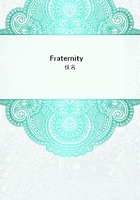
第91章
Cecilia received the mystic document containing these words "Am quite all right. Address, 598, Euston Road, three doors off Martin.
Letter follows explaining. Thyme," she had not even realised her little daughter's departure. She went up to Thyme's room at once, and opening all the drawers and cupboards, stared into them one by one. The many things she saw there allayed the first pangs of her disquiet.
'She has only taken one little trunk,' she thought, 'and left all her evening frocks.'
This act of independence alarmed rather than surprised her, such had been her sense of the unrest in the domestic atmosphere during the last month. Since the evening when she had found Thyme in foods of tears because of the Hughs' baby, her maternal eyes had not failed to notice something new in the child's demeanour--a moodiness, an air almost of conspiracy, together with an emphatic increase of youthful sarcasm: Fearful of probing deep, she had sought no confidence, nor had she divulged her doubts to Stephen.
Amongst the blouses a sheet of blue ruled paper, which had evidently escaped from a notebook, caught her eye. Sentences were scrawled on it in pencil. Cecilia read: "That poor little dead thing was so grey and pinched, and I seemed to realise all of a sudden how awful it is for them. I must--I must--I will do something!"Cecilia dropped the sheet of paper; her hand was trembling. There was no mystery in that departure now, and Stephen's words came into her mind: "It's all very well up to a certain point, and nobody sympathises with them more than I do; but after that it becomes destructive of all comfort, and that does no good to anyone."The sound sense of those words had made her feel queer when they were spoken; they were even more sensible than she had thought. Did her little daughter, so young and pretty, seriously mean to plunge into the rescue work of dismal slums, to cut herself adrift from sweet sounds and scents and colours, from music and art, from dancing, flowers, and all that made life beautiful? The secret forces of fastidiousness, an inborn dread of the fanatical, and all her real ignorance of what such a life was like, rose in Cecilia with a force which made her feel quite sick. Better that she herself should do this thing than that her own child should be deprived of air and light and all the just environment of her youth and beauty. 'She must come back--she must listen to me!' she thought. 'We will begin together; we will start a nice little creche of our own, or--perhaps Mrs. Tallents Smallpeace could find us some regular work on one of her committees.'
Then suddenly she conceived a thought which made her blood run positively cold. What if it were a matter of heredity? What if Thyme had inherited her grandfather's single-mindedness? Martin was giving proof of it. Things, she knew, often skipped a generation and then set in again. Surely, surely, it could not have done that!
With longing, yet with dread, she waited for the sound of Stephen's latchkey. It came at its appointed time.
Even in her agitation Cecilia did not forget to spare him, all she could. She began by giving him a kiss, and then said casually:
"Thyme has got a whim into her head."
"What whim?"
"It's rather what you might expect," faltered Cecilia, "from her going about so much with Martin."Stephen's face assumed at once an air of dry derision; there was no love lost between him and his young nephew-in-law.
"The Sanitist?" he said; "ah! Well?"
"She has gone off to do work-some place in the Euston Road. I've had a telegram. Oh, and I found this, Stephen."She held out to him half-heartedly the two bits of paper, one pinkish-brown, the other blue. Stephen saw that she was trembling.
He took them from her, read them, and looked at her again. He had a real affection for his wife, and the tradition of consideration for other people's feelings was bred in him, so that at this moment, so vitally disturbing, the first thing he did was to put his hand on her shoulder and give it a reassuring squeeze. But there was also in Stephen a certain primitive virility, pickled, it is true, at Cambridge, and in the Law Courts dried, but still preserving something of its possessive and assertive quality, and the second thing he did was to say, "No, I'm damned!"In that little sentence lay the whole psychology of his attitude towards this situation and all the difference between two classes of the population. Mr. Purcey would undoubtedly have said: "Well, I'm damned!" Stephen, by saying "No, I'm damned!" betrayed that before he could be damned he had been obliged to wrestle and contend with something, and Cecilia, who was always wrestling too, knew this something to be that queer new thing, a Social Conscience, the dim bogey stalking pale about the houses of those who, through the accidents of leisure or of culture, had once left the door open to the suspicion: Is it possible that there is a class of people besides my own, or am I dreaming? Happy the millions, poor or rich, not yet condemned to watch the wistful visiting or hear the husky mutter of that ghost, happy in their homes, blessed by a less disquieting god.
Such were Cecilia's inner feelings.
Even now she did not quite plumb the depths of Stephen's; she felt his struggle with the ghost; she felt and admired his victory. What she did not, could not, perhaps, realise, was the precise nature of the outrage inflicted on him by Thyme's action. With her--being a woman--the matter was more practical; she did not grasp, had never grasped, the architectural nature of Stephen's mind--how really hurt he was by what did not seem to him in due and proper order.